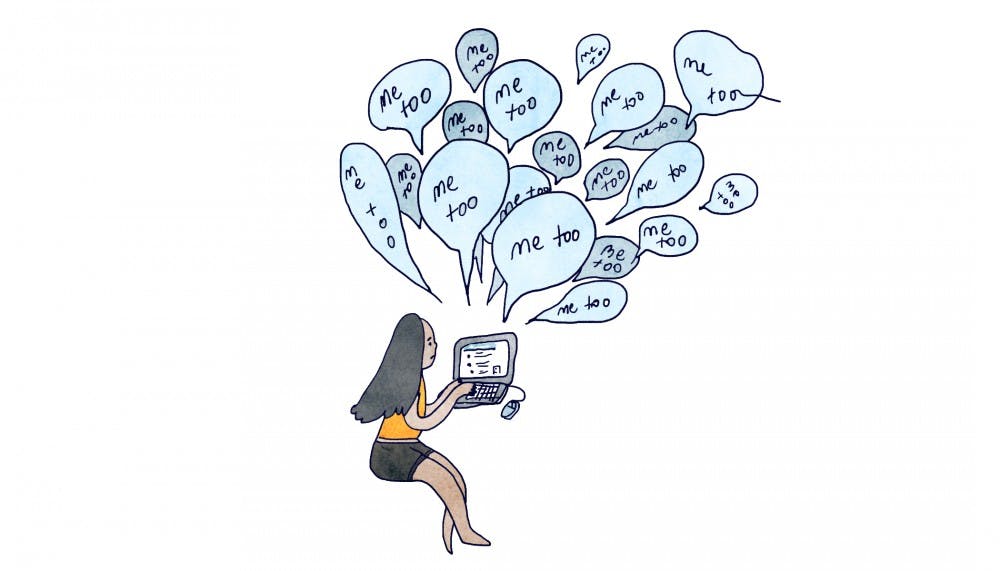Over the past week, the “Me Too” campaign has made its way across social media. But it was Tarana Burke, a black woman, who started this movement over 10 years ago.
Before going further with my thoughts on it, I want to commend all the brave people who have stepped forward in being vulnerable. I also want to commend those who have not, and will not participate in the campaign because they do not want to share their story.
And to those who have no story to share, I sincerely hope you never have to write “me too.”
First, I cannot discuss how sexual harassment affects my life without acknowledging how my race and ethnicity exacerbate it, specifically because a black woman is an architect of this movement.
Is it better to be called “exotic princess” rather than “honey?” How do you compare the two?
You don’t, and I can’t. The experience is surreal, even on UNC’s campus.
I hear, and feel, sexual harassment from people I think are on my side.
I hear it from those who coat their words in Orientalist language as a way to get through to me.
I hear it through interrogations about “what I am” — as if my answer will serve as a justification.




